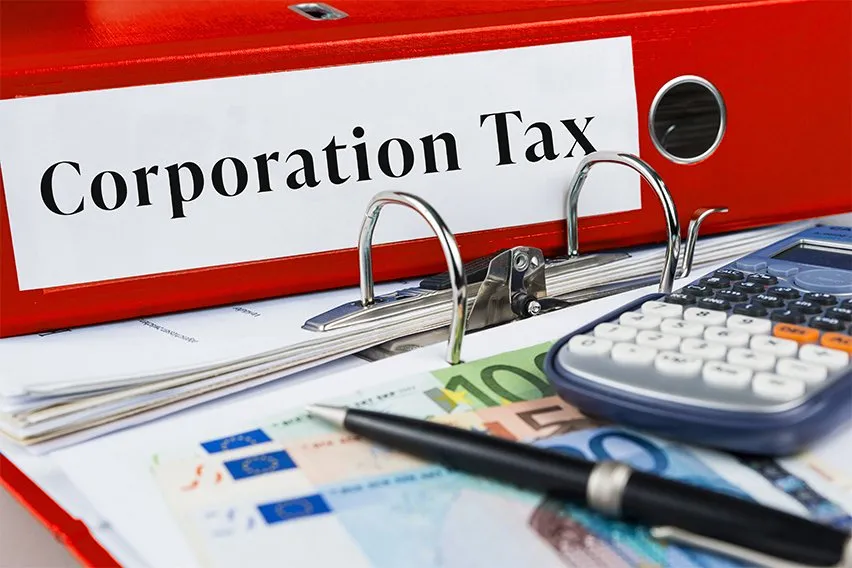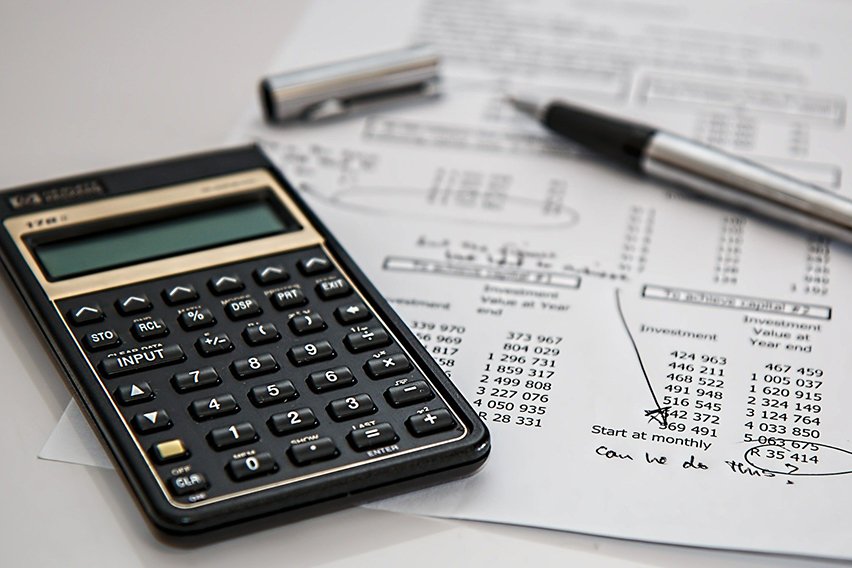How Is Corporation Tax Calculated

One of the biggest parts of owning a small business is understanding your taxes. Taxable income has to be calculated and paid so that your business can continue to operate. If you’re looking to gain a better understanding of corporation tax for your business, look no further. We have all of the information you’ll need in our quick guide!
Here’s What We’ll Cover:
What Is Corporation Tax?
Corporation tax is known by a few names. You may have heard of it as corporate income tax, or corporation business tax. Regardless, the definition is the same. Corporation taxes are the taxes taken out based on the profits of a corporation. The taxes are paid on the company’s taxable income.

Who Has to Pay Corporation Tax?
All businesses in the UK are required to pay corporation tax. This includes the following, specifically:
- Any domestic corporation
- Any foreign corporation with a location in the UK
- A club, co-operative or other unincorporated association (like a community sports club)
- Any limited liability company
- Anyone required to pay small-business taxes (sole traders, etc.)
As you can see, nearly every entity acting as a trader or service company must pay corporation taxes.
How To Calculate Corporation Tax
His Majesty’s Revenue and Customs (HMRC) authority regulates tax rates. This includes the corporate tax rates. For the 2023-24 year, the rate of taxation for corporate taxes is 25%. This makes calculating your applicable tax rate and tax liability easy, making tax payments simple.
For example, if your business makes £10,000 in profit, you can calculate your tax liability by doing the below math:
£10,000 x 0.19 = £1,900
Because the corporation tax is a flat rate, it makes calculating what you’ll owe simple. It can be done with any figure, just by multiplying it by the standard rate of 19%.
Profits That You Pay Corporation Tax On
Any of the below profits are considered taxable income for your business. As such, you’ll be required to pay taxes on them.
- Doing active business (‘trading profits’)
- Investments (seen by investment companies, most of the time)
- Selling assets for more than they cost (real property sales that have made a profit, or ‘chargeable gains’)
If your company is based in the UK, it pays business corporation tax on all profits. This includes the profits made abroad.
If your company is foreign but has a location in the UK, it only pays taxes on activities taking place in the UK.

How Do I Report and Pay My Taxes?
If you own a small business in the UK, you have a tax payment obligation. However, you will not receive a bill from HMRC for the amount due. You have to calculate, report, and pay your taxes on your own. If you fail to do so, your business will face penalties for not paying its taxes.
- Register for corporation tax. This needs to be done through HMRC when you start your business, or when you start doing business again. Unincorporated associations must get in contact with HMRC.
- Keep accounting records. You’ll need these to prepare a Company Tax Return. These are similar to individual tax returns but are for your business specifically. This will help you work out how much tax to pay.
- After you’ve filled out your return, pay your corporation tax. You have 9 months and 1 day after your accounting period to do so. Your accounting period is normally the 12 month period covered by your annual accounts.
- File your Company Tax Return by your deadline. Your deadline is 12 months after your accounting period.
What if I Suffer From Corporation Loss?
Your small business may not make a profit. This can be due to a dip in sales or operating losses. If this happens, you may be able to carry back some of those losses to the previous year. Doing so may result in your business receiving a refund of some of the taxes paid last year.
This is one of the most important parts of using accurate and intuitive accounting programs. A good accounting program can track your accounting period, and calculate all profits for you. Be sure to use trustworthy accounting software for your small business!
Key Takeaways
HMRC sets a flat rate for corporation taxes, making it easy to calculate them. The current corporation tax rate is 25% Be sure to stay in the know when it comes to taxes. We cover a variety of financial topics on our resource hub! Be sure to take a look and inform yourself.
More Useful Resources
- How to Reduce Corporation Tax
- Sole Trader Tax Guide
- Limited Company Expenses
- Business Asset Disposal Relief
RELATED ARTICLES

 A Guide on How to Complete a Vat Return
A Guide on How to Complete a Vat Return What Is VAT Number & How to Find A Business VAT Number?
What Is VAT Number & How to Find A Business VAT Number? What Is Property Income Allowance? An Overview
What Is Property Income Allowance? An Overview 4 Benefits of Being VAT Registered
4 Benefits of Being VAT Registered What Is a VAT Receipt? What Proof Do You Need to Reclaim?
What Is a VAT Receipt? What Proof Do You Need to Reclaim? How to Find a VAT Number: Business VAT Number Check
How to Find a VAT Number: Business VAT Number Check